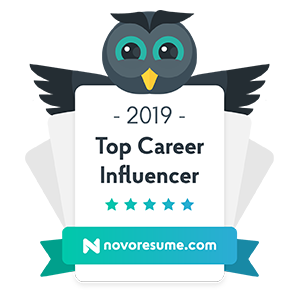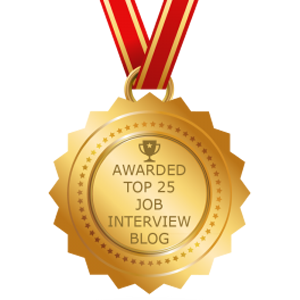There are 9 resume red flags that cause employers to move on to other applicants. This might be the reason you’re not hearing back from your job applications. In this post we will share the top 9 resume mistakes most people make, and quick fixes for making your resume more attractive to hiring managers.
1. Short Employment Stints May Position You as a High-Risk Employee
If your recent resume career history displays a multitude of jobs where you’ve spent less than 1 year, you are officially a job hopper. Employers don’t typically hire job-hoppers because hiring is costly. They don’t want to have to replace you in a year’s time. Once a hiring manager spots multiple hops, you can be sure it will be more difficult to land interviews, since you will be seen as a hopper. Job hoppers are seen as very high risk. If your short employment stints took place in the distant past, not to worry. It’s only any recent short stints that will alert hiring managers to proceed with caution. Oh, and if the reason for your short employment stints was due to contract roles, be sure and specify on your resume. This will help you to avoid job hopper status!
EXPERT TIP:
Career planning is key. Don’t take a job that you don’t plan on having for at least 12-18 months. Started the wrong job and having regrets? Stick it out as long as possible – or at least until you land something new (to avoid a resume gap). If you do make a quick move, plan on staying in the new job for at least a year.
2. Employment Gaps On Your Resume and How to Handle Gracefully
Resume gaps are one of the biggest fears of job searchers (rightfully so). They are often perceived by job searchers as being a huge red flag for recruiters and hiring managers – having the power to completely ruin one’s prospect of landing a job. While this can be the case, it is not always the case because recruiters and hiring managers understand that “life happens.” The reality is this: you can’t eliminate your employment gaps. They will be with you for the rest of your career.
EXPERT TIP:
Take the time to fix your resume gaps with strategic branding – even if this means hiring a professional resume writer. You’ll need to fix your gaps if your resume is to stand a chance in the 6-second recruiter eye scan. We recommend rebranding your resume gaps by detailing any relevant jobs, tasks, skills, and abilities gained during your gap. You should also spend some time turning your resume gaps into selling points by using these expert resume writing tips.
3. Typos Are a Major Dealbreaker. Try This Bulletproof Strategy for Catching Them
Typos are a huge red flag and will automatically eliminate you from the candidate pool when applying for jobs. Linkedin profile typos are also grounds for elimination. From my time spent in executive recruiting, I can confidently vouch for this. Keep in mind that as a potential candidate, you are always making a first impression with the hiring party. A careless typo will definitely create a negative first impression. From the perspective of a recruiter, you would never take a chance on a candidate who represents him/herself by carelessly crafting communications and including typos. This would be a total credibility killer for the recruiter! Regardless of your career level, experience, industry, or connections – a typo can kill your career prospects.
This is especially important if English isn’t your first language. While there may be a certain level of tolerance from the reader when they see you’re from a foreign country, you still never know the level of typo-sensitivity unique to your reader.
EXPERT TIP:
Since you only get one chance to create a first impression, it’s important not to waste that chance with a careless typo. While you may not be the perfect speller, there are tools available to help you overcome these career-killing pitfalls. One spelling and grammar tool that I absolutely LOVE is Grammarly. Grammarly is the world’s best automated proofreader! It’s easy to download, and will automatically underline and catch potential errors while you type. It has saved me from embarrassing errors on more than one occasion. In this blog post I explain how Grammarly works (including screenshots).
4. Information Overload on Your Resume: A Recruiter Turn-Off
No one likes to read resumes for sheer enjoyment. Thus, you want to minimize the amount of time recruiters spend reading yours. Remember: the purpose of a resume is not to detail every piece of information about you. The purpose of resume is to quickly capture a recruiter’s attention so that they will pick up the phone and call you to learn more. Incorporating too much information into your resume will only result in a confusing resume for recruiters and hiring managers. If a recruiter or hiring manager is confused or bored by your resume, you can be sure your resume will end up in the trash. After all, they have hundreds of other resumes to choose from.
Including too much information on your resume will also become confusing for you as the candidate; especially when attempting to explain your career history in a succinct and relevant way! In our experience branding resumes for job searchers at all levels and industries, one of the most fatal mistakes is including more information than necessary. Yet many candidates struggle to detach from this experience when updating their resumes. In all our years of professional resume writing, we’ve learned that it is candidates who fail to detach from information overload, that have the toughest time getting out of career path or job search ruts. If you are someone who is struggling to omit irrelevant information from your resume – aka: career details from 20 years ago, I strongly advise you to let it go. Omitting irrelevant or outdated information will give you an automatic brand refresh.
EXPERT TIP:
Less is more when it comes to reading your resume. Avoid cramming as much info as possible into your resume. If you’re not quite sure which info to keep or delete, we recommend chatting with a resume expert about your unique resume strategy. If you are holding onto information from over 20 years ago, we also recommend omitting. Sure it may have been a huge accomplishment at the time. However, it may negatively magnify any lack of that same type of experience in your current career history.
5. Avoid a Confusing Career Timeline: Stick With a Clean Display for Dates of Employment
You know what a zombie looks like? Picture the hiring manager with that same look after reading through a confusing resume timeline. No one – especially no hiring manager or recruiter, will spend time trying to guess how long you’ve worked for your roster of employers. A confusing timeline alone merits a resume free-throw (into the trash). If you’re changing careers, you may be tempted to swap your chronological resume for a functional resume format. My recommendation? Tread carefully when using a functional resume format. Unless it’s executed extremely well, you may be treading the line of a confusing timeline.
EXPERT TIP:
When formatting your resume, make sure your dates of employment are crystal clear. Use one format and stick to it. Now is not the time to get visually creative. For best results and easy eye-scan, display your dates flush right throughout the entire resume.
6. If You’re Not a Fit, Don’t Waste Your Time Applying
We’ve all done it. I’m guilty as well. It’s that job that you know is just “no way in heck” a fit but you think: “What if?” and apply anyway. Okay okay, you can dream, I get it. Just know that if your resume is “no way in heck” a fit, that the hiring manager is not going to be amused. There is a 100% chance of your resume being flagged and ending up in the trash. The fit has to be there if you are going to land the interview. It’s worth taking the time to analyze fit before applying.
EXPERT TIP:
For dream jobs or career moves that are way outside the realm of reality, you’ll want to use a unique application strategy. Avoid sending a resume and focus on networking instead. Informational interviews are perfect for creating connections and opening doors into your dream job. Yes, strategic networking is more time consuming than hitting the “send” button. However, it is more likely to help you avoid the trash and land the job based on relationship building and leveraging the right contacts.
7. Applying From Abroad? Avoid Confusing Work Authorization
The person reading your resume is likely not going to be an immigration expert. Therefore, if you have any indication of not being authorized (even if you are), you’re likely to be flagged up by the hiring manager. If you are applying from abroad, consider omitting your address from the resume. If your phone number doesn’t match the local format find a way to obtain a local number or omit altogether. This way, you will avoid the trash and have a better chance of being contacted for an initial phone screen. At this point you can then disclose your whereabouts and work authorization status.
8. Hiring Managers Can Spot a Stock Resume a Mile Away: Always Tailor Your Resume or Risk the Trash
You may have a resume sending quota to hit each week, but you don’t want the hiring manager to know this the minute they open your resume. If you want to increase your chances of getting called for an interview, every resume you send must be tailored to the job for which you are applying. Why? Simple. The hiring manager wants to know that you want THEIR job and not any job that comes your way. Call it ego. Call it a pain in the butt. Call it what you want. It won’t change the fact that hiring managers will be way more receptive to a resume that appears to be the closest fit to the role in question. It’s the difference in appearing niche (just the person for the job) or mediocre (one of many people who could potentially do the job).
EXPERT TIP:
Spend some time creating one master resume for each job category you are targeting. Then, make small tailoring tweaks on key resume parts such as the skills keywords, summary and headline for each job to which you are applying. This will require much less effort in the long run. If you need help writing a master resume, narrowing down 3 job categories, or making quick tailoring tweaks, try Job Search Coaching!
9. Avoid the Most Common Resume Eyesores
Competition for jobs is stiff and you don’t want to unknowingly eliminate yourself from the running by committing these cardinal sins of resume writing. What you don’t know about some of the most common resume mistakes could really hurt you. I’ve critiqued hundreds of resumes in my time recruiting and career coaching and these are some of the most common; mistakes you might be making as well.




 Find More Jobs: 6 Online Job Search Strategies to Produce Better Search Results
Find More Jobs: 6 Online Job Search Strategies to Produce Better Search Results


